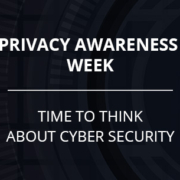Contract Fundamentals – New Zealand
Course Description
Entering into contracts is a fundamental part of doing business. Ensuring your legally binding agreements are accurate, clear and concise will determine whether your business transactions and relationships are successful. This course gives you the tools to better understand contractual agreements and processes.
Contracts form the basis of all business transactions, but in reality can be the cause of much confusion and misunderstanding. Contact Fundamentals provides you with the tools to better understand the issues associated with the pre-contractual process and to appreciate the complexity of interpretation in contractual documents. In addition, the training provides an insight into the meaning of terms in contracts and the mechanics of how a contract is implemented.
The rights and duties of different parties are examined in the light of legislative requirements and the requirements under the general law. This course arms you with the knowledge about how to make contracts work in the day-to-day operation of your organisation.
Who is this training for?
It is important for all employees of a business to understand the fundamentals of contract law.
Course Outline
- Module 1: Introduction to contract law
- Module 2: Pre-contractual issues
- Module 3: Contract terms
- Module 4: Risk management
- Module 5: Contract mechanics
- Module 6: Advertising








